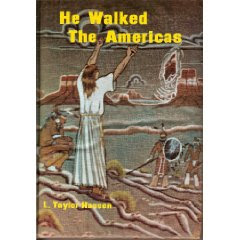It was number one on the New York Times Non-Fiction Best Seller List for six weeks. The book grew out of Pollan's 2007 article Unhappy Meals published in the New York Times Magazine. Pollan has also said that he wrote In Defense of Food as a response to people asking him what they should eat after having read The Omnivore's Dilemma, his previous book.
In the book, Pollan postulates that the answer to healthy eating is simply to "Eat food. Not too much. Mostly plants."Pollan argues that nutritionism as an ideology has overly complicated and harmed American eating habits. He says that rather than focusing on eating nutrients, people should focus on eating the sort of food that their ancestors would recognize.
In the book, Pollan postulates that the answer to healthy eating is simply to "Eat food. Not too much. Mostly plants."Pollan argues that nutritionism as an ideology has overly complicated and harmed American eating habits. He says that rather than focusing on eating nutrients, people should focus on eating the sort of food that their ancestors would recognize.
 1984 by George Orwell A classic dystopian novel published in 1949, focuses on a repressive, totalitarian regime. The story follows the life of one seemingly insignificant man, Winston Smith, a civil servant assigned the task of perpetuating the regime's propaganda by falsifying records and political literature. Smith grows disillusioned with his meager existence and so begins a rebellion against the system that leads to his arrest and torture.
1984 by George Orwell A classic dystopian novel published in 1949, focuses on a repressive, totalitarian regime. The story follows the life of one seemingly insignificant man, Winston Smith, a civil servant assigned the task of perpetuating the regime's propaganda by falsifying records and political literature. Smith grows disillusioned with his meager existence and so begins a rebellion against the system that leads to his arrest and torture.  Airman by Eoin Colfer Conor Broekhart discovers a conspiracy to overthrow the king. He is branded a traitor, imprisoned, and force4d to mine diamonds under brutal conditions. He plans a daring escape.
Airman by Eoin Colfer Conor Broekhart discovers a conspiracy to overthrow the king. He is branded a traitor, imprisoned, and force4d to mine diamonds under brutal conditions. He plans a daring escape. Someone Named Eva, by Joann Wolf
Someone Named Eva, by Joann WolfKidnapped from her village, Milada struggles to remember who she really is as she grows up in a Nazi reeducation school. This book is based on a true story.
The Book Thief is set in Nazi Germany. Beginning in 1939, it focuses on a German girl, Liesel, who is sent by her mother to live with foster parents in a small town near Munich. As Liesel learns to cope with her new environment, all the pains she has endured, and the extreme unhappiness of pre-war and wartime Germany, she yearns to escape via reading. Her foster father Hans helps her learn to read, and Liesel finds books here and there — in a snowy graveyard, in a Nazi book-burning, and inside the local mayor's house. She has a few friends; first her neighbor and classmate, Rudy, and later the son of a soldier her foster father knew in WWI, Max, a Jew whom her new family must hide in their basement. While the toll of WWII, Allied bombing, and Nazi brutality increases, Liesel's world starts to crumble, but words and reading sustain her.
Set in a future post-scarcity dystopian world in which everyone is turned "Pretty" by extreme cosmetic surgery upon reaching age 16. It tells the story of teenager Tally Youngblood who rebels against society's enforced conformity, after her new found friends Shay and David show her the downsides to becoming a "pretty".







 The Omnivore's Dilemma
The Omnivore's Dilemma






